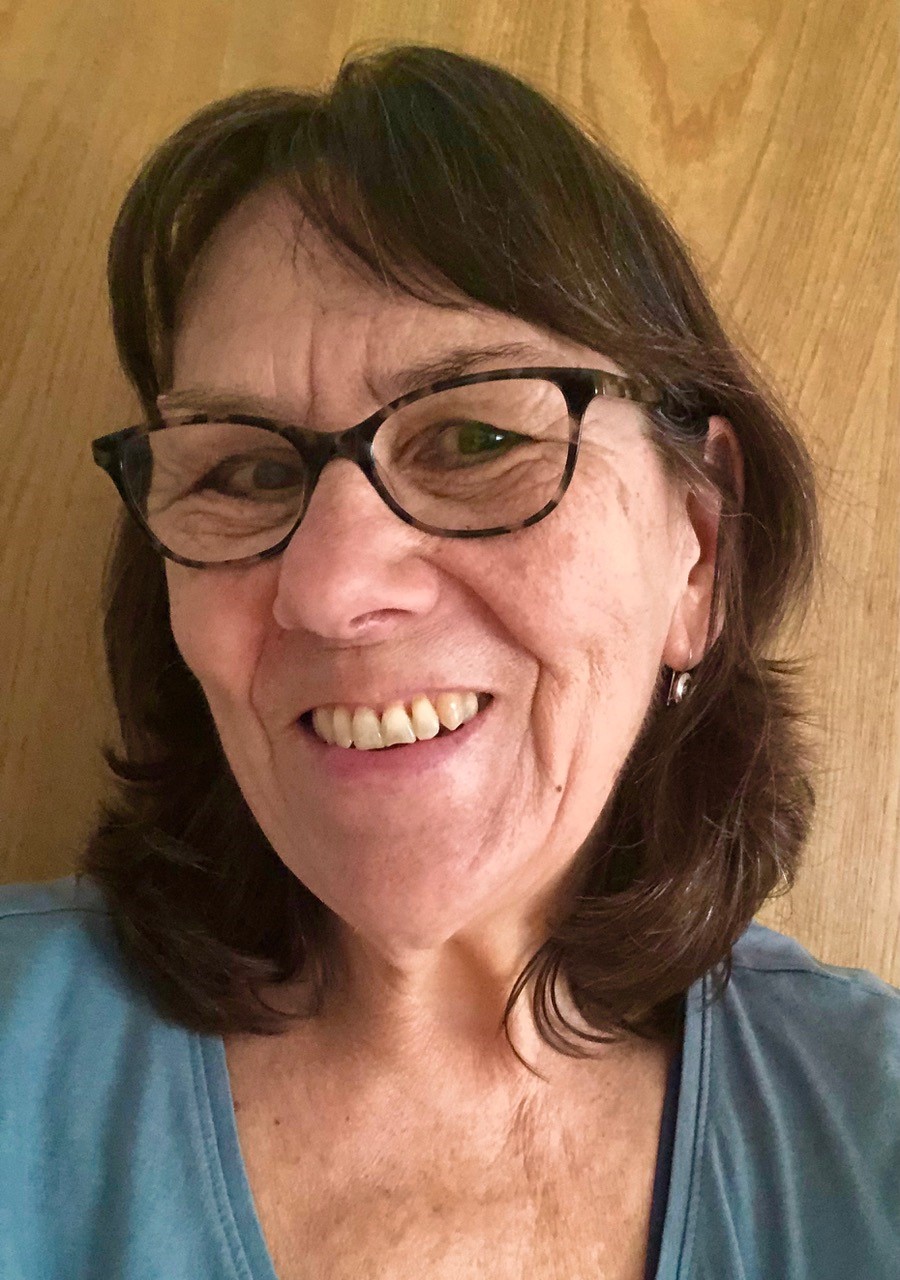
All I can remember from my music education is that Beethoven sawed the legs off his piano, which has nothing to do with anything really,’ says Helen MacGregor, co-author of Listen & Celebrate: Activities to Enrich and Diversify Primary Music – a new book from Collins Music. ‘Listen’, because the book introduces a selection of 15 pieces from a range of time periods, countries, and styles, and ‘celebrate’, because it champions and provides information on the composers and celebrates children's enjoyment of music. Written with Nate Holder (see image below), the new book includes active listening and composing activities for primary teachers – specialist or generalist – to incorporate into their curriculums.
Why now?
MacGregor mentions Beethoven's carpentry because she's explaining how the book came about, which was ‘partly in response to the Model Music Curriculum’ published in March 2021. She agrees with the points made by Dr Elizabeth Stafford in a recent Music Teacher article about teaching listening – fulfilling curriculum aims in listening is not about ‘just sticking on a piece of music’ or reeling off a few facts, says MacGregor. ‘I felt very passionately that the MMC was a retrograde step in some ways,’ she continues. ‘Elizabeth Stafford calls the listening list “incoherent”, which is probably a polite way of putting it!’
The MMC, which is non-statutory, categorises listening repertoire into ‘Western classical tradition and film’, ‘popular music’, and ‘musical traditions’ (the first of these is widened slightly in the Appendix). ‘There's obviously now an emphasis on introducing primary children to the Western classical canon, and these other areas that have now been focused on,’ says MacGregor, ‘but [generalist] teachers are asking: how do we do this? We’ve been given this list, which we don’t understand, without any practical help on what to do with it – what on earth do we do? And more importantly, how do we make it relevant to our curriculum and to the children?’

Helen MacGregor
From the inside out
MacGregor hopes that Listen & Celebrate will be integrated into teachers’ schemes of work – ‘that's the way it's been planned’, she says. ‘It's not just 15 diverse pieces of music – it's also activities that blend in with any scheme of work. The activities are very simple and there's a limited amount of space, but they give teachers tools and ideas for incorporating listening into their curriculums.’ The word ‘activities’ can have negative connotations within primary music education – Ofsted's new national lead for music Christopher Stevens recently warned against ‘isolated activities’ that don't ‘build any of those pillars of progression over time’, meaning that the offering becomes ‘a musical experience rather than a musical education’.
As MacGregor explains, the ideas within the book are far from isolated, and to ‘diversify’ also means broadening the ways in which teachers can use the materials ‘to explore the composing part of the curriculum so that it naturally leads into the rest of the curriculum’. ‘It's not a standalone, “now we're doing listening”,’ adds MacGregor.
She continues: ‘Everything feeds back to build up the children's practical experience, their musical skills, as well as their knowledge about music, from inside the piece of music.’ MacGregor wrote the teaching materials in the book – further resources can also be downloaded from the Collins website – and describes them as ‘starting points’ to give teachers confidence to integrate listening repertoire into the schemes of work they're using so that ‘children make sense of it all’.
Stretching experience and knowledge
In the book and online resources, the authors have tried to create a diverse resource in many senses, with a significant one being the diverse range of people represented in the book. ‘We’ve covered lots of different cultures and parts of the world, but we’ve also tried to be diverse in terms of genres of music, diverse group sizes – from solo to full orchestra – and the activities themselves,’ says MacGregor. ‘The children might be doing rhythm work, singing, performing and composing, improvising, using different instruments – the whole concept of the book is diverse. There's nothing narrow about it.’ She adds: ‘We're trying to stretch children's experiences and knowledge – after all, that's what education is about. If children don't access these at school, then they won't know they exist as adults. There's such a wonderful world of music out there, which we want to introduce to children when they're young.’
MacGregor experienced a ‘narrow’ music education herself and could easily have missed out on this ‘wonderful world of music’. She describes the ‘very restricted repertoire’ she was exposed to while taking graded instrumental exams, recalling that in her education up to A Level, she had ‘no real exposure’ to any other music apart from Western classical and British folk songs. The fact that she ‘didn't have a very exciting’ music education, she says, was not a result of an unlucky postcode lottery, as MacGregor attended many different schools around the country. However, having experienced one ‘vibrant’ music department in Northumberland during her schooling, she went on to study at Goldsmith’s, University of London: ‘As soon as I got to Goldsmith’s, it just hit me that there was so much vibrant music from other cultures surrounding me,’ she says.
Since then, MacGregor has had an extensive career in music education, leading primary and secondary music departments, supporting general classroom teachers in music, spending 10 years working as a freelance music education consultant with the London Philharmonic, and writing the Listen to Music series for Collins Music.
She became interested in teacher training when she realised that her position as a specialist in a primary school was ‘deskilling’ the classroom teachers. ‘They left the children at the classroom door; I put on all the school productions, and they handed over the responsibility to me,’ MacGregor says. ‘So, when I moved to a larger school where I was teaching right the way through from nursery to Year 6, I suggested at the interview that I worked with the class teachers.’
She adds: ‘I was in one school for nine years working full-time with all the teachers – doing the planning together, getting involved in education projects at the Southbank and widening the experiences of the children enormously, but also enhancing the teachers’ understanding of teaching music, so that they felt confident to do projects of their own and take things back into the classroom.’ MacGregor continued to teach children throughout her career, right up until just before lockdown. ‘I thought I’d retired,’ she laughs, ‘but then this project came up.’
Nate Holder (below)

Lifelong experience
The book's introduction provides readers with a friendly overview of its contents and opens with the line: ‘It is important to challenge the antiquated ideas of a “great composer”, sitting alone at a desk, writing out the musical notation by hand.’ Speaking about this now, MacGregor says, ‘Children don't necessarily apply the word “composer” to musicians who are making music in a band, for example. They think of composers as people from history – or maybe somebody contemporary, but always writing the music down in some way.’ She continues: ‘It's tied up with that tradition of learning to read music through sheet music, which is part of a very Western way of learning.’
It's hoped that Listen & Celebrate will help children understand that there are other ways of creating music, such as in oral/aural traditions. One of the composers included in the book is Sona Jobarteh, a British-born Gambian griot, who was the world's first female professional kora player. ‘It's about breaking boundaries,’ says MacGregor, ‘and getting children to think beyond what they already know. They are composers in the classroom, and they can be composers as a lifelong experience, even if it's not as a professional career. They can make up songs for their own children, and they can use keyboards or electronic programmes to create their own music if they wish – we just want children to understand that in the earlier stages.’
As MacGregor reiterates throughout our conversation, this book is just a starting point, and the 15 included composers barely scratch the surface of those who can be explored as part of a rich primary curriculum. Ideally, Listen & Celebrate won't be used ‘discreetly’ as part of short music lessons, but will be weaved into the whole curriculum by class teachers. MacGregor adds: ‘We know that music is most successful when it's part of the school's life, it takes place every day, and class teachers feel confident enough to incorporate music in whatever way they're able to in their curriculum planning.’ Hopefully, this book will serve as a celebratory step in the right direction.
Helen MacGregor will be leading a session at MT's conference in London on 5 July – visit www.curriculummusicconference.com.








